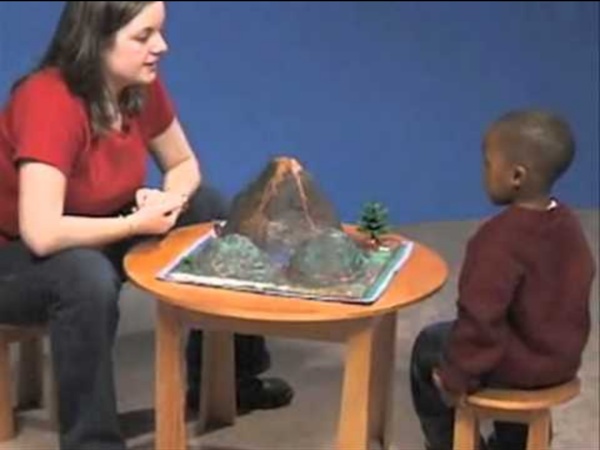



http://www.youtube.com/watch?v=TRF27F2bn-A
Related: eirinikouzoukasWhat teens really want to know about sex On the first day of my Sexuality and Society class, I don’t pass around anatomy drawings. I don’t hand out pamphlets about safer sex, although those are stacked on a table near the door. Instead, the first thing I do is establish ground rules. People should speak for themselves, laughter is OK, we won’t ask “personal history” questions, and we’ll work to create a community of peers who care about and respect one another. Only then can we get to work. Schizophrenia Revealed To Be 8 Genetically Distinct Disorders Just over 1 percent of the American population has been diagnosed with schizophrenia, a severe mental disorder that causes debilitating symptoms including paranoid delusions, auditory hallucinations, and impaired social behavior. A new study has revealed that schizophrenia is not one disease, but eight disorders with genetically distinct causes. This could dramatically change how schizophrenia is diagnosed and treated. The research was led by C.
Our Use Of Little Words Can, Uh, Reveal Hidden Interests Katherine Streeter for NPR One Friday night, 30 men and 30 women gathered at a hotel restaurant in Washington, D.C. Their goal was love, or maybe sex, or maybe some combination of the two. They were there for speed dating. The Good Listener: What's The Perfect Soundtrack To Teenage Flirtation? : All Songs Considered We get a lot of mail at NPR Music, and amid the Bachelor Bouquets we ordered ourselves in order to appear loved is a slew of smart questions about how music fits into our lives — and, this week, thoughts on music to play at a dance for nervous, flirtatious teenagers. Nanna writes via Facebook: "This Valentine's Day, I will attend a formal thrown for freshman and sophomore college students in the Netherlands — they are giving us, the lecturers, free drinks, so how could I not? — and I'm already massively looking forward to observing awkward late-teens eyeing each other and trying to flirt. What would be the best soundtrack to this particular event?" These teenagers in the 1998 film Can't Hardly Wait needed their own nostalgia â which is why today's teenagers might not connect with Can't Hardly Wait the way an earlier generation did. Columbia Pictures hide caption
How Language Seems To Shape One's View Of The World "It's on the left," he says. "No, it's southeast of here," she says. iStockphoto hide caption The Psych Files - Episode 36: The Myth of the Kitty Genovese Story - ProMed Network Welcome Guest Contact | Create Account | Sign In The Psych Files Episode 36: The Myth of the Kitty Genovese Story Criminal vs. Civil Court Cases The judicial branch must apply the existing laws to each individual situation, to be sure justice is administered fairly. This includes punishing those who are guilty of breaking the law, and keeping the rest of the community safe from crime. Courts also settle disputes between citizens that they can’t resolve on their own. In criminal cases, the government brings a case against one or more defendants.
Why Are More American Teenagers Than Ever Suffering From Severe Anxiety? At a workshop for parents last fall at the NW Anxiety Institute in Portland, Ore., Kevin Ashworth, the clinical director, warned them of the “illusion of control and certainty” that smartphones offer anxious young people desperate to manage their environments. “Teens will go places if they feel like they know everything that will happen, if they know everyone who will be there, if they can see who’s checked in online,” Ashworth told the parents. “But life doesn’t always come with that kind of certainty, and they’re never practicing the skill of rolling with the punches, of walking into an unknown or awkward social situation and learning that they can survive it.”
Are Gummy Bear Flavors Just Fooling Our Brains? : The Salt Color really does impact our perception of taste — even if the ingredients are otherwise the same, scientists say. It's something candy companies use to their advantage. Justin Sullivan/Getty Images hide caption toggle caption Justin Sullivan/Getty Images Color really does impact our perception of taste — even if the ingredients are otherwise the same, scientists say.
125 Amazing Facts for People Who Like Amazing Facts From pint-sized activists to elementary school entrepreneurs, the digital world has been instrumental in giving a global platform to anyone who wants to make a difference—regardless of age. Need proof? Look no further than the 15 amazing kids highlighted here, each of whom is doing his or her part to make the world a better place. Studies show that the typical American will read around five books per year. Defense Attorney And Client Disagree On Guilty Plea At Supreme Court At the Supreme Court on Wednesday, all the justices who spoke signaled they have a problem with a lawyer who disregards his client's explicit instructions and concedes his client's guilt to the jury. At the U.S. Supreme Court today, justices both liberal and conservative signaled they have a problem with a lawyer who disregards his client's explicit instructions and concedes the client's guilt to the jury. The defendant, Robert McCoy, is charged with killing three family members in a vain attempt to find his wife.
A Song Explains Love's Science : Shots - Health News Love is complicated, scientifically speaking. There's no single, specific "love chemical" that surges through our bodies when we see our beloved, and we can't point to a specific corner of the brain where love resides. Still, scientists have measured real changes in our bodies when we fall in love: an ebb and flow of signaling molecules. In that early lustful phase, sex hormones like testosterone fuel the libido (in both men and women). The dopamine highs of new attraction have been compared by some scientists to the effects of cocaine use. The anxiety associated with new romance has been linked to low levels of serotonin in the brain.